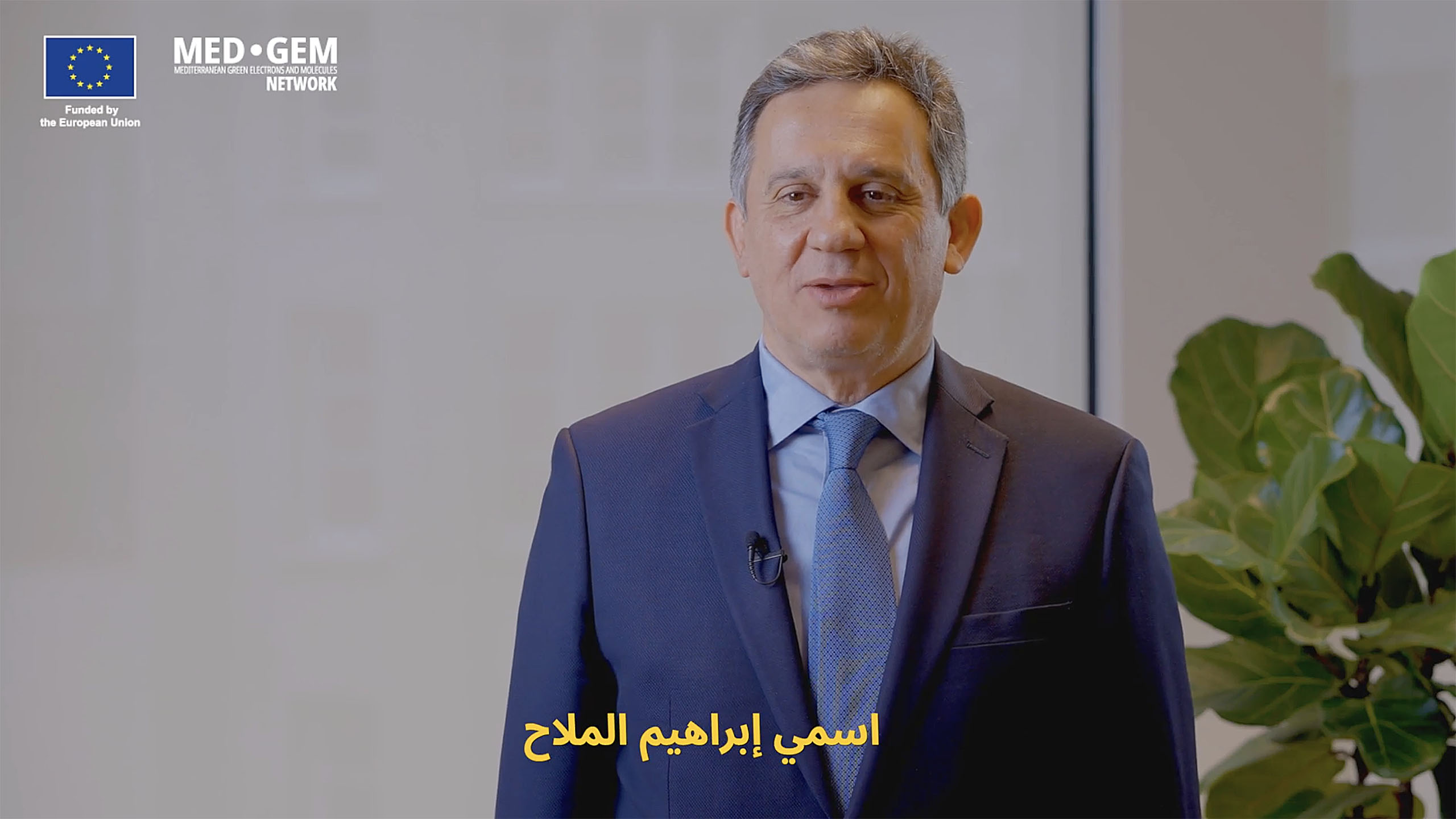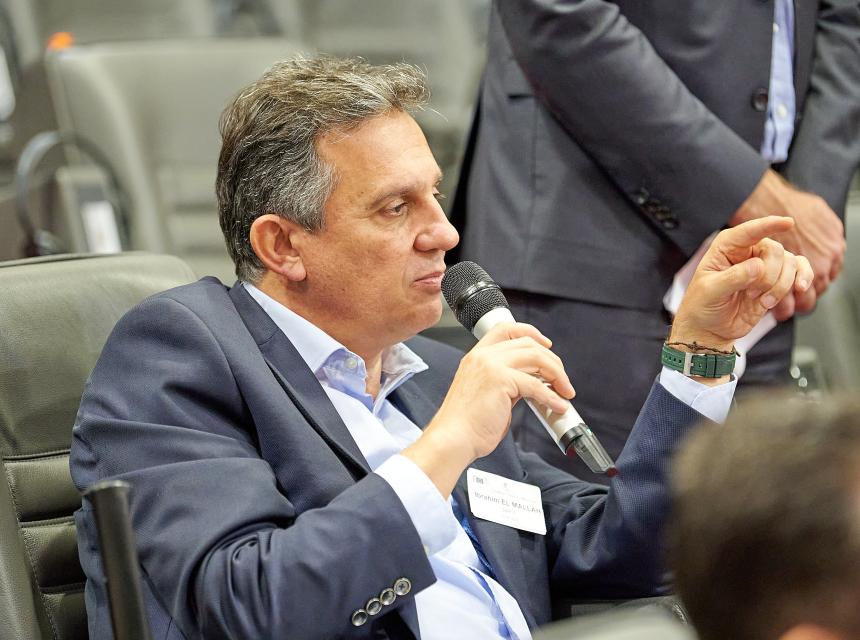Navigating the Turbulence: Lebanon’s Industry Eyes Renewable Energy Amidst Crisis | An interview with Mr Ibrahim Mallah
Amid economic instability and political uncertainty, Lebanon’s industrial sector is turning towards renewable energy as a beacon of hope. In an interview conducted during the 2nd Industrial Advisory Board (IAB) of the MED-GEM Network, held at the headquarters of Hydrogen Europe in Brussels on June 11, 2024, Ibrahim Mallah, Head of the Energy and Sustainable Development Committee at the Association of Lebanese Industrialists (ALI), discusses the challenges and opportunities that lie ahead for Lebanon's industrialists within the framework of the EU-supported MED-GEM program.

Lebanon's Industrial Landscape: A Sector Under Siege
Lebanon’s industrial sector has long been a cornerstone of the national economy, yet it now finds itself grappling with a convergence of crises. The economic downturn, compounded by political deadlock and regional conflicts, has left many industries in a precarious state. “We are facing a phase of instability in Beirut due to the economic and politic situations and to the war in Gaza,” explains Ibrahim Mallah. Despite these challenges, there is a palpable sense of resilience within the industrial community, which is looking to renewable energy as a path forward.
Renewable Energy: A Technical Support for Strategic Reflection
The MED-GEM program, supported by the European Commission, offers more than just a glimmer of hope. It provides critical technical support that can help shape strategic thinking and bolster initiatives within Lebanon’s industrial sector. This initiative aims to foster collaboration across the Mediterranean region on renewable energy projects, with a particular focus on solar energy and hydrogen. Mallah underscores the importance of this support, stating, “We are hoping the European Commission can provide the support we need to face the problems in our country, especially through projects related to renewable energy and hydrogen.”
Lebanon’s industries, particularly small and medium-sized enterprises (SMEs), are in dire need of this support. “More than 80% of our industries are SMEs that cannot finance renewable energy projects on their own. Our role at the Association is to help these enterprises find the necessary support and financing,” Mallah notes. This assistance is crucial not only for energy sustainability but also for job creation in a country where unemployment rates have soared.
CBAM and ETS: Preparing for New Challenges
As Lebanon’s industrialists pivot towards renewable energy, they must also contend with new regulatory challenges, notably the EU’s Carbon Border Adjustment Mechanism (CBAM) and the Emissions Trading System (ETS). These mechanisms, designed to curb carbon emissions, pose significant hurdles for Lebanese exporters. “We know that there will be problems when exporting to European countries due to CBAM and ETS,” Mallah acknowledges. However, he remains optimistic, emphasising the need for increased awareness and capacity-building to navigate these challenges.
Building Capacity: A Path to Sustainability
Capacity building is a recurring theme in Mallah’s vision for Lebanon’s industrial future. “We need more skilled people to work on renewable energy projects,” he asserts. The MED-GEM project is poised to play a critical role in this regard, by facilitating technical expertise which could foster job creation in regions far from Beirut, where opportunities are scarce. Mallah envisions a future where renewable energy projects not only power Lebanon’s industries but also drive socio-economic development across the country.
Conclusion: A Call for Continued Support
In the face of immense challenges, Lebanon’s industrial sector is striving to adapt and innovate. The transition to renewable energy, supported by international cooperation through programs like MED-GEM, is a critical component of this effort. As Mallah poignantly concludes, “We have to thank the European Commission and the MED-GEM network for their support. We hope to continue this cooperation in the coming years as we work towards a more sustainable and resilient industrial sector.”

